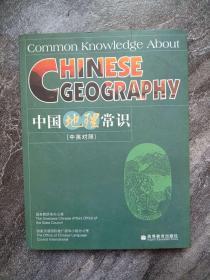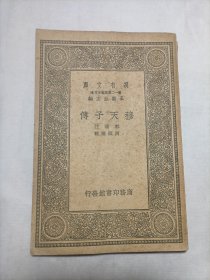
Common Knowledge How Companies Thrive by Sharing What They Know [精装]
¥ 80 九五品
仅1件
作者Dixon;Nancy M
出版社HARVARD BUS. SC
出版时间2000-03
装帧其他
货号A4
上书时间2021-07-26
- 在售商品 暂无
- 平均发货时间 11小时
- 好评率 暂无
- 最新上架
商品详情
- 品相描述:九五品
图书标准信息
- 作者 Dixon;Nancy M
- 出版社 HARVARD BUS. SC
- 出版时间 2000-03
- ISBN 9780875849041
- 装帧 其他
- 页数 208页
- 【内容简介】
- Breakthrough research on knowledge transfer reveals five proven methods for making knowledge sharing a reality - which are right for your company? While external knowledge - about customers, about competitors - is critical, it rarely provides a competitive edge for companies because such information is equally available to everyone. But internal 'know-how' that is unique to a specific company - how to introduce a new drug into the diabetes market, how to decrease assembly time in an automobile plant - is the stuff of which sustained competitive advantage is made. Nancy Dixon, an expert in the field of organizational learning, calls this knowledge borne of experience 'common knowledge', and argues that in order to get beyond talking about knowledge management to actually doing it, companies must first recognize that all knowledge is not created - and therefore can't be shared - equally. Creating successful knowledge transfer systems, Dixon argues, requires matching the type of knowledge to be shared to the method best suited for transferring it effectively. Based on an in-depth study of several organizations - including Ernst & Young, Bechtel, Ford, Chevron, British Petroleum, Texas Instruments, and the U.S. Army - that are leading the field in successful knowledge transfer, "Common Knowledge" reveals groundbreaking insights into how organizational knowledge is created, how it can be effectively shared - and why transfer systems work when they do. Until now, most organizations have had to rely on costly 'trial and error' to find a knowledge transfer system that works for them. Dixon helps managers take the guesswork out of this process by outlining three criteria that must be considered in order to determine how a transfer method will work in a specific situation: the type of knowledge to be transferred, the nature of the task, and who the receiver of that knowledge will be. Drawing from the successful - but very different - practices of the companies in her study and providing compelling illustrative stories based on the experiences of real managers, Dixon distills five distinct categories of knowledge transfer, explains the principles that make each of them work, and helps managers determine which of these systems would be most effective in their own organizations. "Common Knowledge" gets to the heart of one of the most difficult questions in knowledge transfer today: what makes a system work effectively in one organization but fail miserably in another? Going beyond 'one-size-fits-all' approaches and simple generalities like upper management involvement and cultural issues, this important book will help organizations of every kind construct knowledge transfer systems tailored to their unique forms of 'common knowledge' - and in the process create the best kind of competitive advantage there is: the kind that can't be copied.
- 【目录】
-
相关推荐
-

Common Knowledge
九品北京
¥ 25.00
-

Common Knowledge
九品淮安
¥ 50.00
-

common knowledge
八五品北京
¥ 69.00
-

RATIONAL RITUAL :CULTURE, COORDINATION, AND COMMON KNOWLEDGE
八五品北京
¥ 199.00
-

Common Knowledge Nancy M. Dixon 英语原版
九五品廊坊
¥ 160.00
-

C++ Common Knowledge: Essential Intermediate Programming: Essential Intermediate Programming
九五品牡丹江
¥ 249.00
-

《中国地理常识》CHINESE GEOGRAPHY Common Knowledge About 中英对照
九五品天津
¥ 25.00
-

理性的仪式:文化、协调与共同知识:culture, coordination, and common knowledge
全新广州
¥ 36.42
-

理的仪式:文化、协调与共同知识:culture, coordination, and common knowledge
全新北京
¥ 35.38
-

理性的仪式:文化、协调与共同知识:culture, coordination, and common knowledge9787300293929
全新广州
¥ 35.08
— 没有更多了 —
![Common Knowledge How Companies Thrive by Sharing What They Know [精装]](https://www0.kfzimg.com/sw/kfz-cos/kfzimg/dcaaacae/997139faf2ba62e6_b.jpg)
![Common Knowledge How Companies Thrive by Sharing What They Know [精装]](https://www0.kfzimg.com/sw/kfz-cos/kfzimg/bdafaaee/04ec82cae018f4a3_b.jpg)
![Common Knowledge How Companies Thrive by Sharing What They Know [精装]](https://www0.kfzimg.com/sw/kfz-cos/kfzimg/fcfeecfe/7eb9d2808b7d22df_b.jpg)
![Common Knowledge How Companies Thrive by Sharing What They Know [精装]](https://www0.kfzimg.com/sw/kfz-cos/kfzimg/eccbebea/a41b6fb2b229f0fe_b.jpg)
![Common Knowledge How Companies Thrive by Sharing What They Know [精装]](https://www0.kfzimg.com/sw/kfz-cos/kfzimg/ccdbebeb/0f89872909ba1eb3_b.jpg)
![Common Knowledge How Companies Thrive by Sharing What They Know [精装]](https://www0.kfzimg.com/sw/kfz-cos/kfzimg/baebdfda/e14c73d0a2347454_b.jpg)
![Common Knowledge How Companies Thrive by Sharing What They Know [精装]](https://www0.kfzimg.com/sw/kfz-cos/kfzimg/ceefefec/22c83d9a9a1d5588_b.jpg)
![Common Knowledge How Companies Thrive by Sharing What They Know [精装]](https://www0.kfzimg.com/sw/kfz-cos/kfzimg/afdfacac/7320688df135291c_b.jpg)










![Common Knowledge How Companies Thrive by Sharing What They Know [精装]](/dist/img/error.jpg)
以下为对购买帮助不大的评价